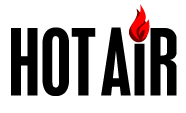 BY J.E. DYER
BY J.E. DYER
Turkey’s pulsating new foreign policy is so multifaceted it may soon run out of Turks to keep it going. With “tectonic” geopolitical shifts creating new opportunities, Recep Tayyip Erdogan is executing a pretty tectonic plan of his own. The unmistakable themes are regional leadership, Islamic-world leadership, and putting Turkey in the broker’s seat for as many points of conflict as possible.
The Turkish effort in Libya is gathering steam, with the dispatch of warships to enforce the embargo and the visit to Ankara on Monday of a Qaddafi envoy, reportedly in Turkey to discuss a truce. Turkey is being billed overtly as a “mediator,” perhaps in part because NATO Secretary General Anders Fogh-Rasmussen was also in Ankara Monday.
The Erdogan government may have no better luck brokering a Libyan truce than theAfrican Union had the week before last, but Turkey is forging ahead in the political-momentum sweepstakes. On 31 March, Erdogan became the first Turkish prime minster ever to visit the Kurds of Iraq. While in Iraqi Kurdistan, he opened a Turkish consulate in Irbil and presided at the opening ceremony for a new commercial airport.
With this VIP outreach, Erdogan hopes to put Turkey on offense and assume leadership on one of the region’s principal sources of destabilization. Besides Turkey, Syria and Iran are both concerned about restive Kurdish minorities, especially while their central governments are under threat. Opening a unique dialogue with the Iraqi Kurds – who are invested with the state trappings of a semi-autonomous government – is a way for Turkey to gain leverage over the other Kurd-troubled nations. Erdogan naturally hopes to preempt his own Kurdish insurgents as well, with a view to border security and the 2011 national elections.
There may also be an element in this of preempting Iran, which has been caught in recent weeks promoting an Islamist insurgency in neighboring Azerbaijan, a client of Turkey and the U.S. Turkey and Iran want to retain influence with each other, but they are competitors in their visions for regional (and global Islamic) leadership; both are working harder right now to seize separate, sometimes conflicting opportunities than to butter each other up. It was as a participant in this competition that Turkey, in March, confiscated an Iranian arms shipment bound for Syria and went on to report the breach – quite officiously – to the UN.
But wait – there’s more. Turkey achieved a military first last week, hosting atrilateral exercise with the armies of Afghanistan and Pakistan. NATO is pleased to see this as a helpful outreach on behalf of the alliance. Turkey sees it as an exercise in regional and Islamic-state leadership –and as a declaration of political independence, like the Turkish armed forces’ series of drills with China (see here andhere), and the Turks’ intransigence on their demands regarding the purchase of F-35 fighter jets from the U.S. Turkey wants avionics source codes, which the U.S., in spite of pressure from Britain and Israel, decided in 2009 not to hand over to any F-35 customer. In late March, Turkey suspended its F-35 purchase until the source codes are forthcoming, which neither Israel nor Britain has felt in a position to do.
On Monday, President Abdullah Gul arrived in Indonesia for the first visit of a Turkish president since 1995 (and only the third since Indonesian independence in 1945). Among the ties he seeks to strengthen are Turkish arms exports – to both Indonesia and Malaysia, the most predominantly Muslim of the Southeast Asian nations. Notably, the arms exports in prospect are weighted heavily toward armored fighting vehicles, something both nations already have in abundance. But Turkey hopes to expand arms cooperation to include the joint development of warships and artillery weapons.
U.S. analysts would once have considered this a disquieting development, but perhaps we can congratulate ourselves that we no longer overreact to these things.
J.E. Dyer blogs at The Green Room, Commentary’s “contentions” and as The Optimistic Conservative. She writes a weekly column for Patheos.
hotair.com, 4 April 2011

Leave a Reply